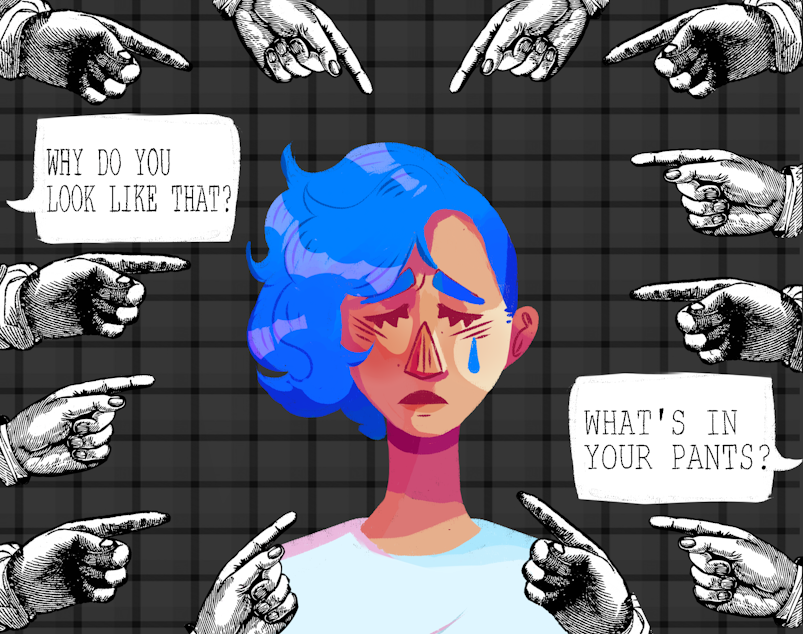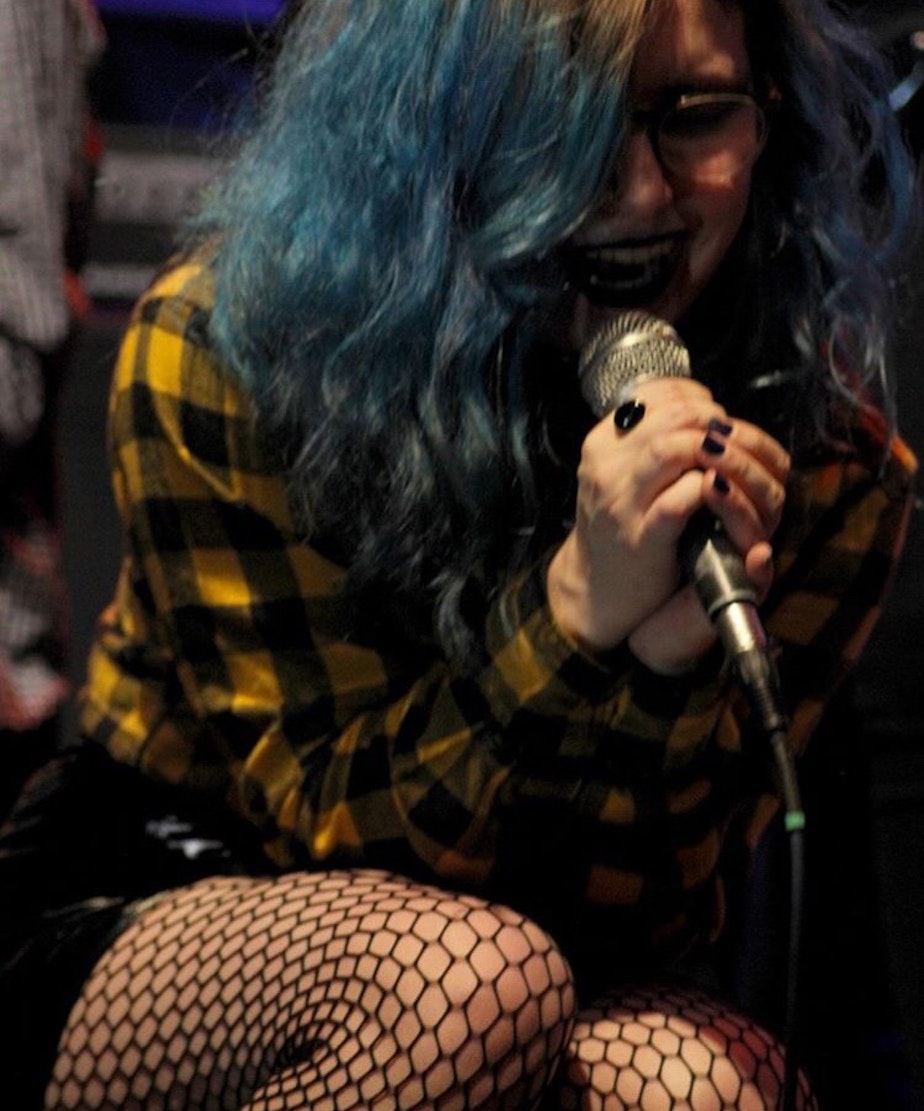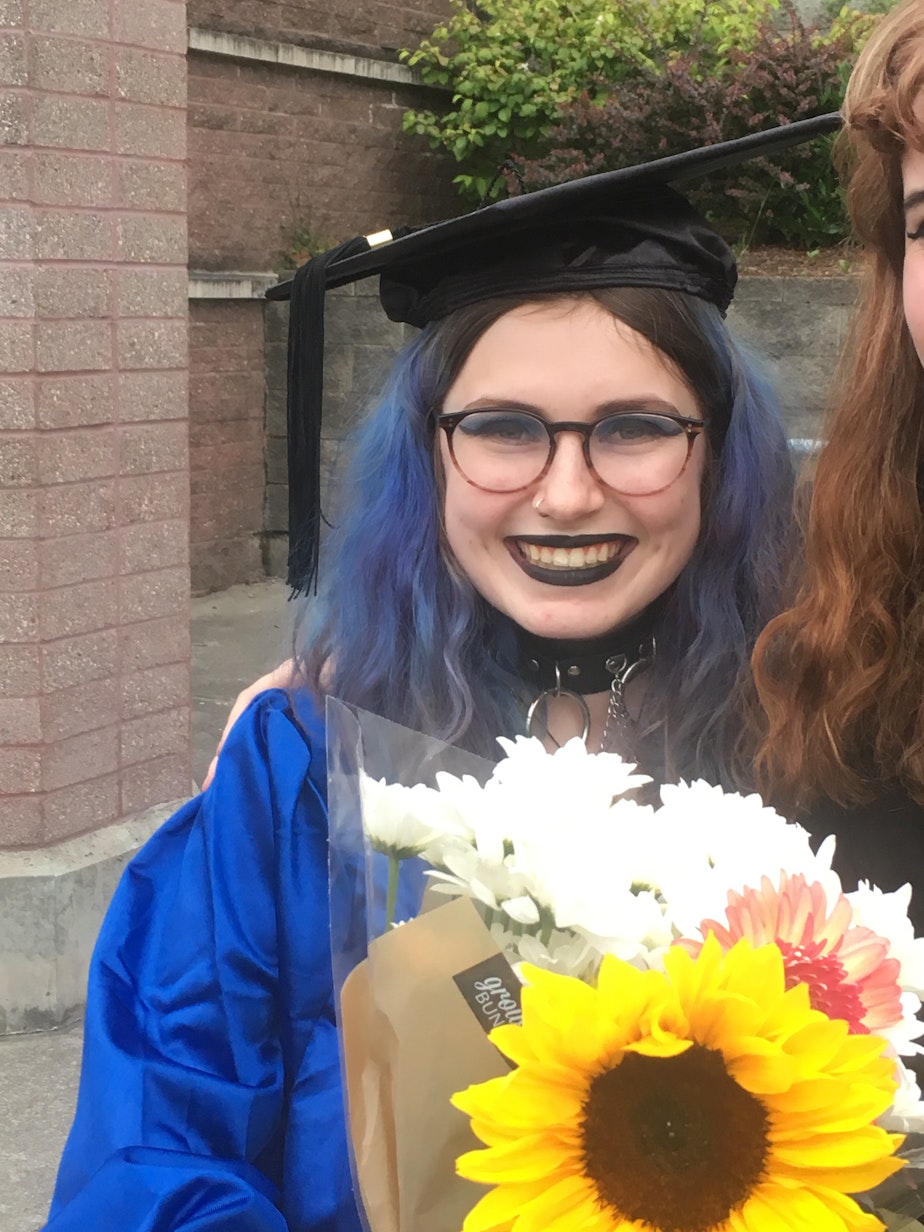When unwanted questions drove us out of school, Nova welcomed us

For some students, going to school means unwelcome questions. Questions about their identity, their sexuality, or the way they act.
This can force some people to avoid school or even drop out.
I found a better alternative by transferring to Nova High School last year as a freshman.
[Ed.note: We will be using the students' first names and last initials to protect their privacy.]
I spoke with Mimi H, a recent Nova graduate, about her experience.
Mimi told me that she struggled in a traditional school setting. Her peers' comments about her appearance made her dread going to school.
“I really stuck out like a sore thumb,” she told me. “As being someone queer, very alternative ... neon blue hair and dark makeup and platform Docs.”
My experience was similar, except I faced other students' invasive questions about being transgender. In middle school, people would always ask me why I was trans, or what was in my pants, or if I was going to get surgery. It was tiring.
Sponsored
Sorry, but that’s none of your business!
Even though Mimi and I went to different schools, we both felt like we weren’t accepted.
Mimi also had difficulties with the teachers and staff. She was struggling with her mental health and had self-harm scars on her arm. The school counselor noticed — but not in a good way.
“The guidance counselor comes up to me in the hallway and is like, cover your sleeves because you can’t have that here or else you just have to go home,” Mimi said. So she decided, "Okay, I’ll leave."
Sponsored
"I didn’t go for the rest of the school year," she said. "I thought I was never going to succeed in high school, or even finish my freshman year.”
My issues were mostly with the other students. My friends thought it was funny to insult me and call me slurs.
Eventually, I dropped out of eighth grade and began taking online classes.
After being out of school for awhile, both Mimi and I began attending Nova High School, an alternative high school.
Things were completely different there.
Sponsored

“It was like this hallelujah moment. This is my saving grace,” she said. “Oh my god, this is frickin’ destiny. This is the perfect chance to start over.”
Nova is dedicated to discussing mental health and trauma with their students. Nova has no grades as a way to relieve stress. We do open-ended projects so students decide what they want to learn, instead of reading textbooks and doing worksheets.
Nova has much smaller class sizes, and we call our teachers by their first names. This leads to some students and teachers feeling more connected.
“Seeing them as people you trust and can confide in and not, ‘Oh, Mr. Robinson who teaches my AP Lit class... oh my god, he is so scary,' But, ‘Oh yeah, that’s my teacher Mike. He’s really awesome,’” Mimi said.
Sponsored
One of the main reasons students, including myself, decide to go to Nova is because of how welcoming the school is to LGBT students. There are committees and clubs like Gender Tea, where students discuss gender and drink tea together.
For Mimi, this normalizes queerness and makes it a “commonplace thing. Kids don’t feel like they’re weird or that they’re an exception to a norm because being straight isn’t the norm.”
I think it would be great if other schools had more programs like this. That way it wouldn’t fall on the shoulders of LGBT kids to educate their peers.

Sponsored
Because of Nova, Mimi was able to graduate high school, and I’m about to start my second year.
However, not everyone can attend an alternative school, so Mimi wishes staff members at other schools would check in with their students more.
“There are always signs that someone is struggling, or suffering, or needs help, or just wants someone to talk to," she said. "If you know to look for it, then you’ll see it.”
I wish students were taught to be kind to and accepting of one another, even if there are things they don’t understand.
Everyone deserves to feel respected.
This story was created in KUOW's RadioActive Intro to Journalism Workshop for 15- to 18-year-olds, with production support from Kyle Norris. Edited by Liz Jones.
Find RadioActive on Facebook, Twitter and Instagram, and on the RadioActive podcast.



